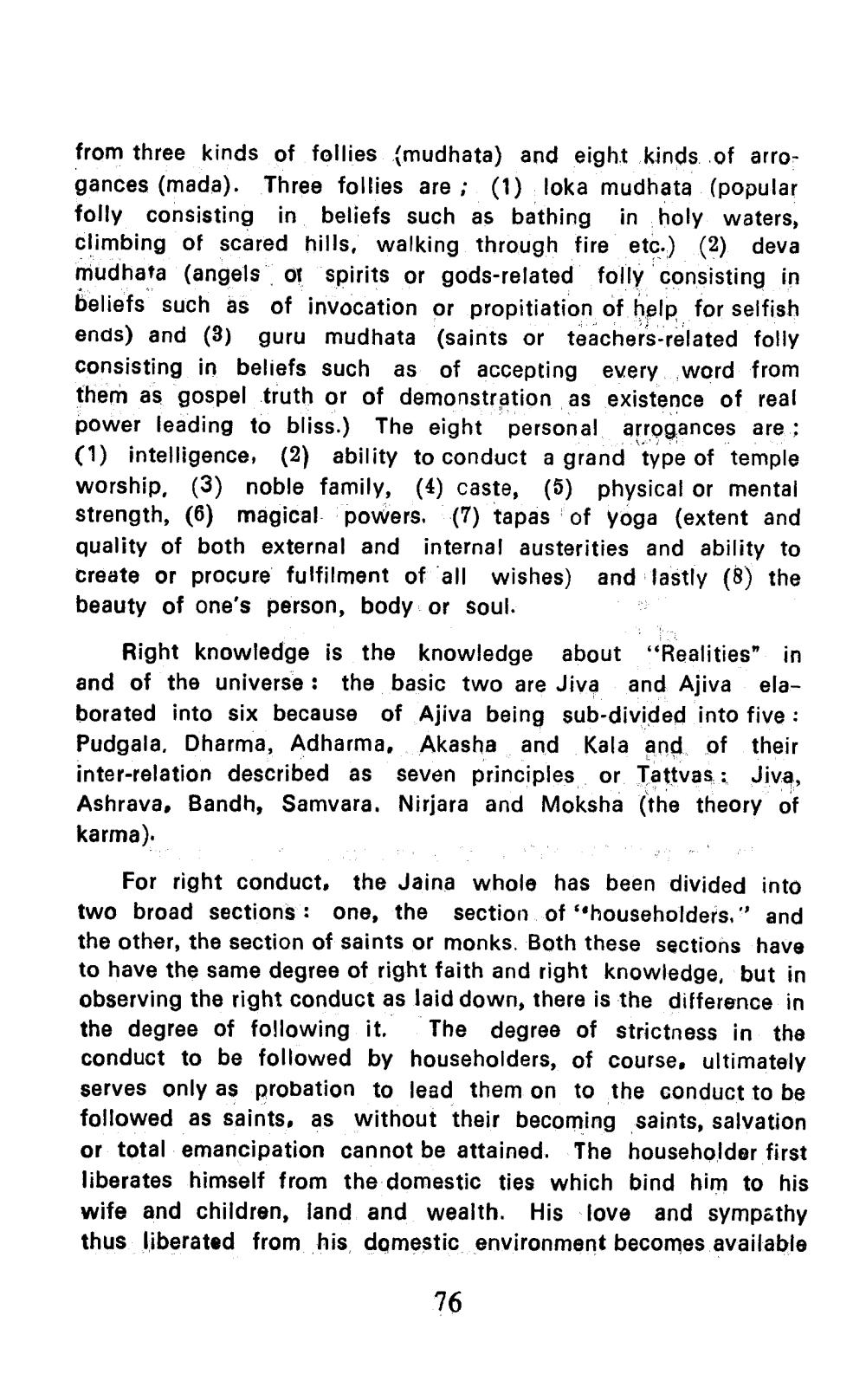________________
from three kinds of follies (mudhata) and eight kinds of arrogances (mada). Three follies are ; (1) loka mudhata (popular folly consisting in beliefs such as bathing in holy waters, climbing of scared hills, walking through fire etc.) (2) deva mudhata (angels" or spirits or gods-related folly consisting in beliefs such as of invocation or propitiation of help for selfish ends) and (3) guru mudhata (saints or teachers-related folly consisting in beliefs such as of accepting every word from them as gospel truth or of demonstration as existence of real power leading to bliss.) The eight personal arrogances are ; (1) intelligence, (2) ability to conduct a grand type of temple worship. (3) noble family, (4) caste, (5) physical or mental strength, (6) magical powers. (7) tapas of yoga (extent and quality of both external and internal austerities and ability to create or procure fulfilment of all wishes) and lastly (8) the beauty of one's person, body or soul.
Right knowledge is the knowledge about “Realities" in and of the universe : the basic two are Jiva and Ajiva elaborated into six because of Ajiva being sub-divided into five : Pudgala, Dharma, Adharma, Akasha and Kala and of their inter-relation described as seven principles or Tattvas · Jiva, Ashrava, Bandh, Samvara. Nirjara and Moksha (the theory of karma).
For right conduct, the Jaina whole has been divided into two broad sections: one, the section of "householders," and the other, the section of saints or monks. Both these sections have to have the same degree of right faith and right knowledge, but in observing the right conduct as laid down, there is the difference in the degree of following it. The degree of strictness in the conduct to be followed by householders, of course, ultimately serves only as probation to lead them on to the conduct to be followed as saints, as without their becoming saints, salvation or total emancipation cannot be attained. The householder first liberates himself from the domestic ties which bind him to his wife and children, land and wealth. His love and sympathy thus liberated from his domestic environment becomes available
76




